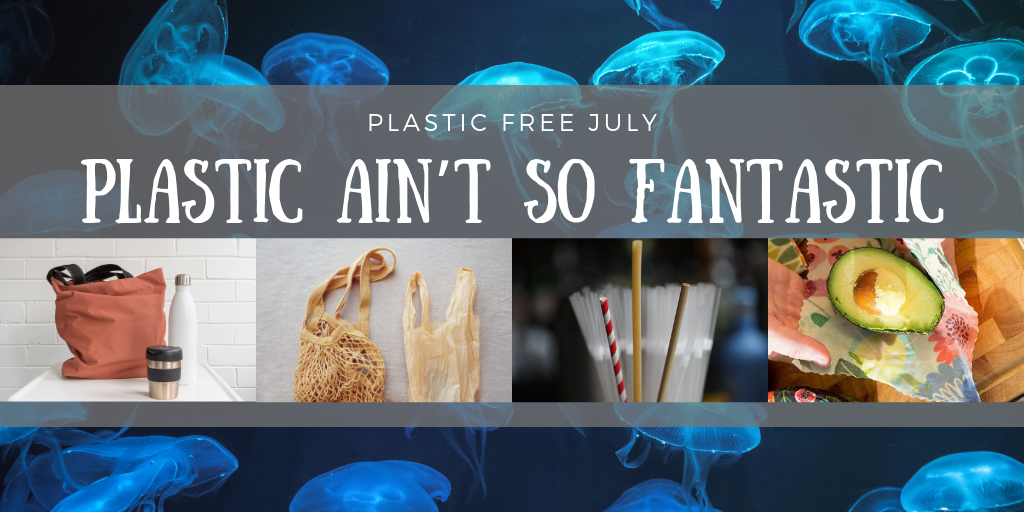Single-use plastics is the name given to plastic products which are used only once, usually for a few minutes, before being disposed of. Plastics can be derived and created from natural, organic materials such as natural gas, coal, cellulose and crude oil (Plastics Europe, 2019). Examples of these plastics include plastic shopping bags, straws, coffee stirrers and plastic bottles. Plastics have been found to impact the environment in a variety of ways. Most plastics are not biodegradable (decomposes into natural substances like soil) but instead degrade into tiny particles called microplastics (Plastic Free Challenge, 2019). This process, however, can take an extremely long time, with some items taking an estimated 1000 years to degrade. The time taken to degrade, along with the constant creation of more plastic, means that the amount of plastic within the environment is increasing at an alarming rate. It is believed that there are currently 5.25 trillion pieces of plastic debris in the ocean (Ocean Crusaders, 2019). This plastic is commonly mistaken as food and frequently consumed by animals. Unable to be digested, the plastic inevitably kills the animal. As well as being consumed, an estimated 100,000 marine creatures die a year from plastic entanglement.
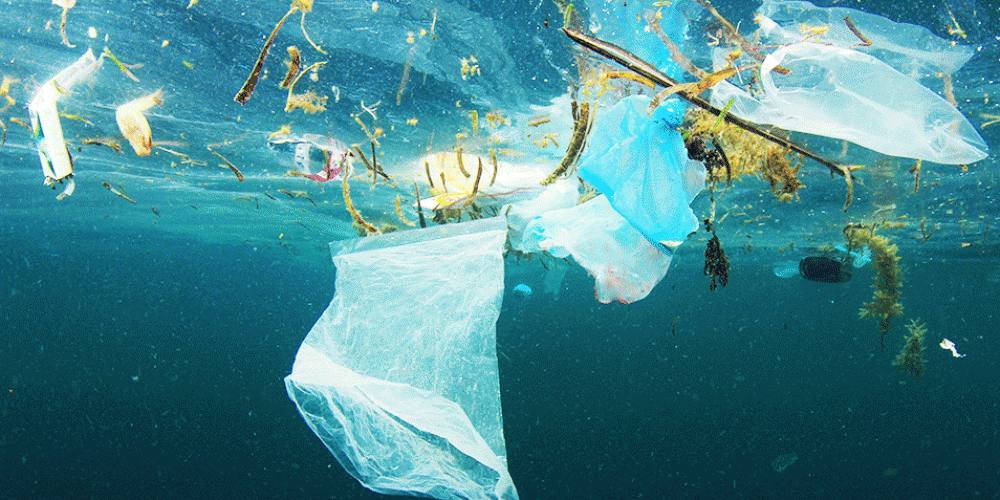
Beginning of Change

In 2018, it was announced that single-use plastic bags were to be banned with Western Australia, aligning the state with rest of Australia (except New South Wales) (Department of Water and Environmental Regulation, 2017). The initiative has been widely supported by the community and industry. Since the ban was introduced within Australia, the National Retail Association has estimated 80% drop in plastic bag consumption nation-wide, which equated to 1.5 billion less bags entering landfill each year (Kirk, 2019). That’s not the only plastic-reducing initiative, on the West Australian government’s mind. The State Government hopes to have a list of single-use products to target next year, including balloons, plastic cutlery and straws (Adshead, 2019).
Plastic Free July
Plastic Free July is a movement inspired by more than 120 million participants in 177 countries around the world. The idea is to choose to refuse single-use plastic for the month of July (and hopefully beyond!). The movement hopes to raise awareness and promote solutions for a single-use plastic-free future. The Plastic Free July website provides a range of resources and ideas to help reduce single-use plastic waste in everyday life (Plastic Free July, 2019).
Take-away Coffee Cups
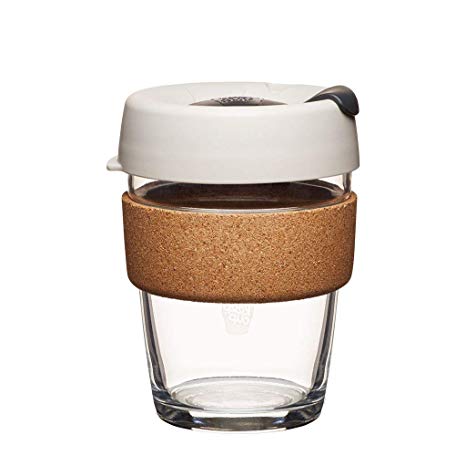
Take-away coffee cups are not recyclable in most locations and often end up in landfill. Even ‘compostable’ cups are rarely composted as specific conditions and facilities are required. Reusable coffee cups are readily available and are a great alternative when purchasing take-away coffee cups. There are many reusable cups designs and sizes to choose from; glass, ceramic, travel flasks and even collapsible mugs to save space in your bag. Some cafes even give discounts to customers who bring reusable cups instead of using single-use cups. Forget your reusable cup? Why not dine-in instead (Plastic Free July, 2019)!
Fruit and Vegetables
Unfortunately, a lot of fruit and vegetable produces are sold with plastic wrapping or packaging. Try shopping at local grocery stores, or head to farmers markets instead. The produce will most likely also be fresher. Small, loose produce, such as beans, can be put into the paper mushroom bags rather than the plastic bags offered. Also, don’t forget the reusable shopping bags for when you’re finished (Plastic Free July, 2019).
Plastic Straws
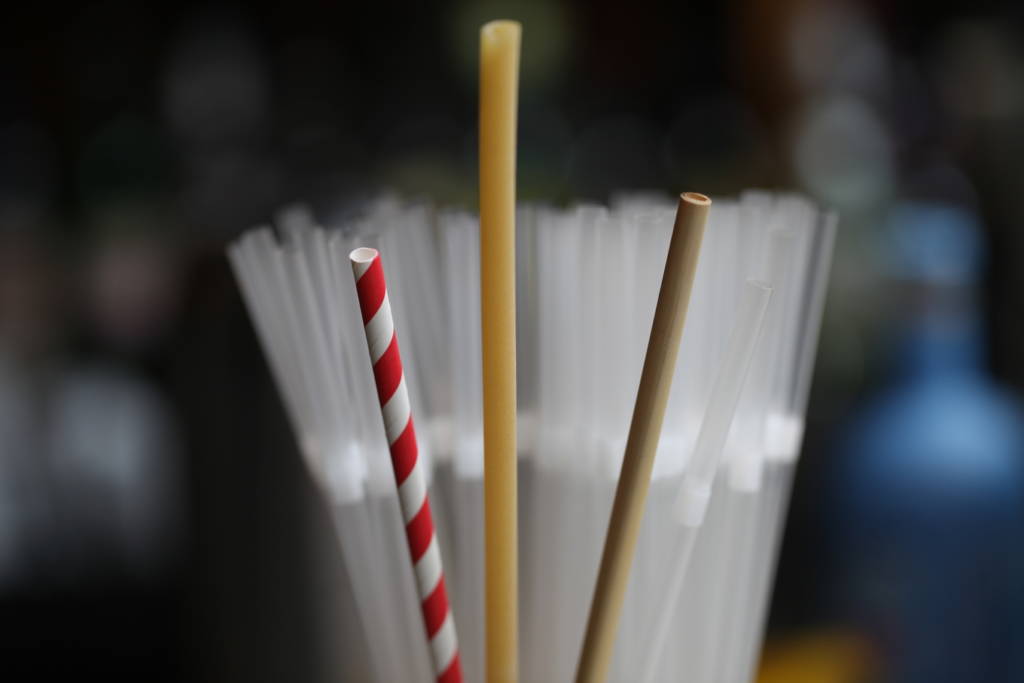
Plastic straws are often used for a few minutes and then enter our environment for years. Straws have been found to enter our waterways, rivers and oceans as they are lightweight and easily blown around. Straws have been found to become stuck in the airways of animals and also ingested. Like coffee cups, there are many sustainable options around to replace plastic straws. Bamboo, paper, stainless steel and glass options are available as well as a foldable reusable straw which can easily be kept in your pocket. When out and about, make sure to request the drink is made without a single-use plastic straw. It is important to do this before the drink is made as once the straw is in there, it’ll likely become plastic waste anyway (Plastic Free July, 2019).
Plastic Food Wraps and Bags
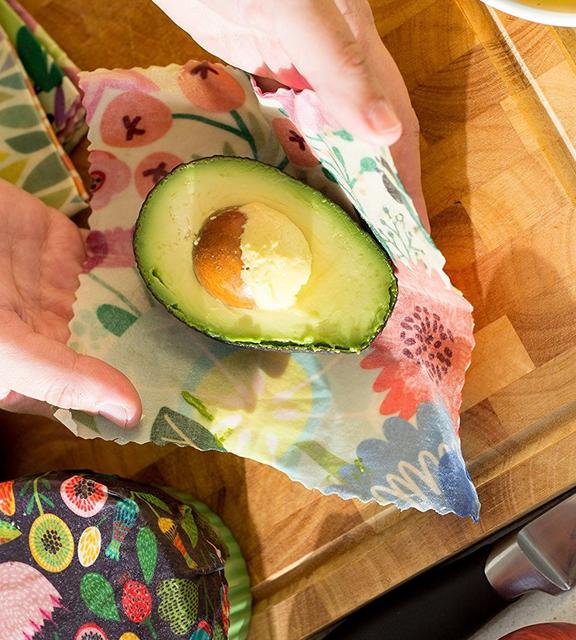
In the ocean, lightweight plastic bags and plastic wrap can often be mistaken as food and ingested. Lightweight plastic bags and wraps, which make their way into the ocean, are often mistaken for jellyfish and eaten by turtles making it important to use sustainable alternatives where possible. A lot of businesses support the reduction of single-use plastics and will allow reusable containers to be used. Beeswax wraps are also a new alternative to the market which are becoming more popular. Beeswax wraps are made from organic cotton and beeswax making them reusable, washable and a sustainable alternative to single-use plastic bags and cling wrap (Plastic Free July, 2019).
Integrate Sustainability is passionate about environmental sustainability. For advice on sustainable options for your business, please contact us on 08 9468 0338 or enquiries@integratesustainability.com.au.
References
Adshead, G., 2019. More single-use plastic products on WA Government’s green hit list. The West Australian, 12 April.
Department of Water and Environmental Regulation,
2017. Implementing a lightweight single-use plastic bag ban in Western
Australia. [Online]
Available at: https://www.der.wa.gov.au/images/documents/our-work/consultation/Plastic_bag_ban/Plastic-bag-ban_discussion-paper.pdf
[Accessed July 2019].
Kirk, D., 2019. This is how many plastic bags have
been saved in Australia since the ban. [Online]
Available at: https://www.contiki.com/six-two/many-plastic-bags-saved-australia-since-ban/
[Accessed July 2019].
Ocean Crusaders, 2019. Plastic Statistics. [Online]
Available at: http://oceancrusaders.org/plastic-crusades/plastic-statistics/
[Accessed July 2019].
Plastic Free Challenge, 2019. What is Single-Use
Plastic and Why is it a Problem?. [Online]
Available at: http://www.plasticfreechallenge.org/what-is-single-use-plastic
[Accessed July 2019].
Plastic Free July, 2019. Plastic Free July. [Online]
Available at: https://www.plasticfreejuly.org/
[Accessed July 2019].
Plastics Europe, 2019. How plastics are made. [Online]
Available at: https://www.plasticseurope.org/en/about-plastics/what-are-plastics/how-plastics-are-made
[Accessed July 2019].

